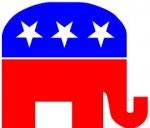Being Right: Corporate Cop Out

One week ago, the United States Supreme Court decided the benchmark case of Citizens United v. Federal Elections Commission. The Court’s 5-4 majority ruled that the government could not place limits on corporate spending in elections. The Court argued that such spending constituted free speech. Banning corporate campaign contributions would be a direct violation of the First Amendment. The four dissenting justices, led by eighty-eight year old John Paul Stevens, argued that unlimited corporate spending means unlimited corruption and collapse of democracy. Interestingly, the five majority justices are all politically right of center and made a liberal argument for campaign spending. The majority’s first priority was protecting basic liberties from government interference. The four minority justices are all left-wingers. Yet they made a very conservative argument on the issue. They were concerned for the health and good of America’s political institutions. As a man who loves both free choice and democracy, I was very torn between the two sides.
The majority’s decision appeals to my love for economic and personal freedom. Some may scoff at the idea that spending qualifies as speech. Yet this form of personal expression drives America’s economy and has done so for over two hundred years. Businesses need the ability to spend how they choose. This freedom allows them to make good investments, pay workers proper wages and generate money for themselves and the community. Government should not tell an individual or a business how to spend its own, hard-earned money. This question of personal choice is central to the health care debate as well. The Democratic Congress wants to tell businesses and average Americans how much they must spend on health insurance and what type of heath insurance they must buy. Regulating spending in such a way is both economically dangerous and destructive to the basic framework of American freedom. Left-wingers should remember that expression and speech are freedoms. They are no different from freedoms of privacy, religion or press. Campaign spending cannot be dismissed simply as corporate greed.
Despite my undying love for liberty, I am sympathetic to the dissent’s argument. Today’s Corporate America has too much influence in the national and state governments. Legislatures are littered with cases of bribery and shady dealings with corporate lobbyists. For example, the iron hand of corporate influence has driven New York State into the ground. At least ten state legislators have been accused or convicted of crimes in the last decade. Most of these crimes were related to money and bribery. The poster boy for New York corruption is former Senate Majority Leader Joe Bruno. Bruno was recently convicted of two counts of mail and wire fraud that involved “theft of honest services.” To make matters worse, Bruno paid for his defense team with funds meant exclusively for campaigns. Bruno is a Republican, but the New York Democrats have had enough dealings in corruption to make any decent American sick to his stomach. Meanwhile, New York has tumbled into a three billion-dollar deficit, and Upstate New York becomes increasingly crippled by downstate taxes and spending.
Clearly corporate-government relations are a major problem for our country. People have warned against such corruption since the nation’s beginning. The Anti-federalists, a group of men who opposed the 1787 Constitution, believed governments could not handle a population of over three million people. They argued that only the wealthiest in our society would have influence in the government. Indeed, things have played out this way, and corporate campaign spending is partially to blame. However, one must trace this problem to our nation’s politicians rather than corporations. President Obama called the Citizens United decision “a major victory for big oil, Wall Street banks, health insurance companies and the other powerful interests that marshal their power every day in Washington to drown out the voices of everyday Americans.” Yet no group has been more supportive of these interests than Obama and the Democratic Congress. Last year’s stimulus bill gave bonuses to AIG insurance executives who drove their company into the ground. Washington bailed out Detroit’s inefficient auto companies. Proposed emissions regulations will favor large corporations that have the resources for research and development. The new health care bill will line the pockets of insurance company at the expense of quality health care. Let’s not forget Obama’s devotion to the workers’ organizations that have become entirely corporate in the last fifty years. No American politician has done more to support the wealthy than Barack Obama. Our president has drowned out the voices of everyday Americans. Corporate influence in American politics is a stark reality today. Yet Americans should not be content with this reality. The incestuous relationship between corporations and government is a massive blow to individual liberty. Every human being has the right to self-government, and corporate influence restricts this right. Therefore, I side with Justice Stevens and the dissenters in Citizens United. Yet we must place due blame on today’s politicians.









